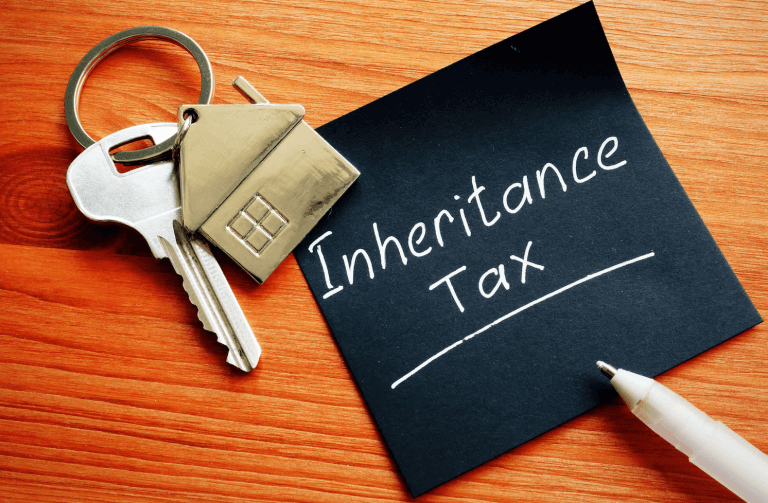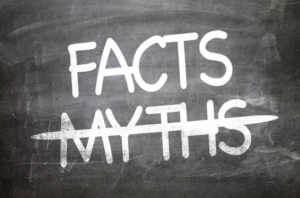Most families who receive inherited property are keen to sell up and move on under these circumstances. That’s because they already own a home and find it difficult to clear out the debris from a parent’s home.

They realise too that the longer they hold on to an inherited property the more likely it is to fall into disrepair and need maintenance work – especially if it’s far from where they live. The best thing to do, many believe, is to sell the property for a ‘reasonable sum’ as quickly as they can.
But, selling an inherited property tends to be a stressful undertaking – and even more so when you are trying to deal with the emotions involved in coping with a bereavement.
At this point, it can be tempting to fall for the charms of a house buying scammer. They will offer to take the worry off your shoulders by giving you a quick cash sum for the property. This will only be ‘on the table’ for a certain length of time and will be well beneath the market value of the property.

But give yourself time to think and realise there are genuine house buying companies out there who understand you may feel too confused and upset to cope with selling an inherited property. There are experts like ourselves who can help you through the process.
What is inherited house tax?
Inheritance tax is a government tax that is paid by those who have inherited property and other assets or money from a loved one, friend or distant relative etc. This is known as an ‘estate’. It’s not just property that makes up an individual’s estate, but also the money they have in the bank, any investments, business ventures, vehicles and the money received from a life insurance policy (or two).
At the moment there is a threshold of £350,000. If you receive an inheritance worth more than this then you will pay 40 per cent tax on it. That 40 per cent is reduced to 36 per cent if 10 per cent of the net estate is given to charity.
Inheriting a house from family
If you are a child (biological, foster or adopted) and have inherited your parents or grandparents’ home, then you are entitled to an additional saving.

This is referred to as the ‘residence nil rate band’, commonly known as the ‘main residence’ band. It increased by another £175,000 in 2020/21. As a result, it means you won’t have to pay inheritance tax on the first £500,000 (ie £350,000 + £175,000). If the estate is worth more than £2 million then the allowance will fall by £1 for every £2 above that figure.
Who do you pay inheritance tax to?
Inheritance tax is paid to the government. Unlike other taxes such as Capital Gains Tax or Self-Assessment, it’s not the recipient who calculates and pays the tax, but rather the executor of the will (which is also usually a solicitor). If there isn’t a will then it’s the Administrator who deals with this side of the business.
What if you are named the executor of the will?
There can be occasions when you are the one who has to sell the house as outlined in the will of your deceased relative or friend. This is where life can really start to get tricky as you will have to apply for a grant of probate. You will then have to pay probate fees and pay the inheritance tax from the deceased’s estate.
We can hold your hand and help you through the process of getting the probate granted.
Unfortunately, probate isn’t quick. It can actually take around four months in some cases – and only then can you put the house on market and sell it.
How to avoid paying inheritance tax
If you are the beneficiary rather than the recipient i.e. you plan on leaving your house to family members, then there are ways to reduce or even avoid the inheritance tax conundrum. This includes:
· Leaving the property to your partner (married or civil)
· Paying cash into a pension (rather than a savings account)
· Gifting up to £300,000 a year to family or friends
· Gifting at least seven years prior to your death
· Using a life insurance policy which will pay the inheritance tax for you
Get in touch!
Are you thinking of leaving your property to a loved one and not sure how to maximise the value of it so they don’t lose out on thousands of pounds worth of inheritance tax? Or perhaps you have already inherited a property and are confused over what the inheritance tax implications are?
At Faster Property Solutions we deal, on a fairly regular basis, with individuals, couples and families who have inherited property from loved ones. As such, we can help you through the entire process from dealing with the probate all the way to selling your inherited property.
Often this involves us sorting out maintenance issues with that particular property, even undertaking a fair bit of refurbishment work. Both of these tasks can prove extremely stressful at such a difficult time in your life and we’re happy to take them on. The result is you can get on with what you need to do and we’ll help you get the most out of your property.
To see exactly how we can help, take a look at our website www.fasterpropertysolutions.co.uk today. You’ll be glad you did!






